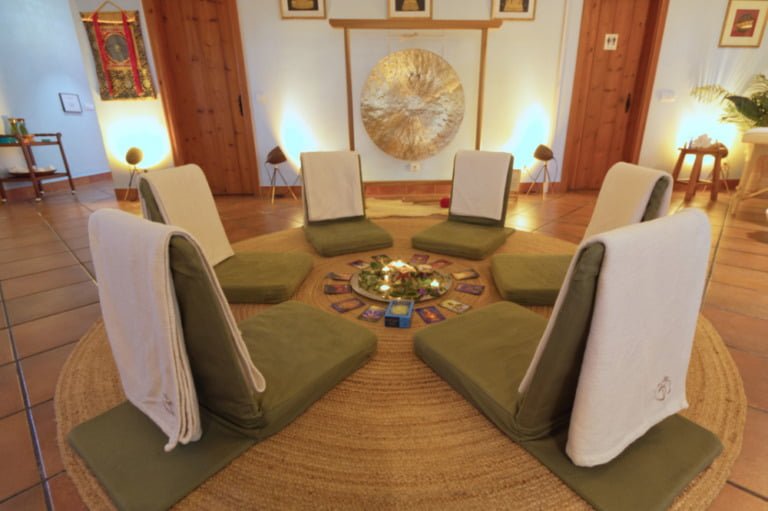Group Therapy Programme
By nature, human beings are among the more gregarious of mammals; however, the demands and stresses of life, and the careers we often choose can lead to extended periods of isolation. This is where our group therapy programme is especially helpful.
Similarly, our attempts to self-medicate depression or stress through substance abuse further reinforce the isolation cycle. Since prolonged periods of substance abuse usually require lying and the hiding of one’s habit to avoid reprimands or abandonment from those we love, as addicts, it is all too common to create a double life for ourselves, to ensure that we keep using undisturbed.
Though we may not see this at the time, this comes with an elevated price-tag. One of the properties about, say, opiates, that anyone who has been addicted will highlight as one of the prime motivators is the fact that it is “the great leveller.”
Everything becomes scaled down in its importance, and so for the fear of loneliness. But strip away the numbness of opiates, or whichever substance or process is killing your emotional pain, and, invariably, you will realize for the first time in a good while, that you actually need people, especially when trying to break out of an addiction.

Sadly, the process of addiction usually alienates our loved ones from us: our lies, our empty promises to get better, our selfishness in caring only for our “hunger” lead to frustration on their behalf. So, when we do finally commit to recovery, those relationships, though they can be repaired, are often weakened.
Besides, even if they were truly there, and wholly untainted by the above factors, how does one frankly speak about all the emotional elements of an addiction to another person who has never been through its maws?
The concept of peer, or group support, is not a new one, and extends as far back as the late eighteenth century in France, for example, where the governor of Bicêtre psychiatric hospital, located in Paris, saw the occupational and emotional value of employing recovered patients as hospital staff.
In the US, in 1935, a meeting of minds between two men—Dr Bob S., a surgeon, and Bill W, a stockbroker—who were both suffering from alcoholism, led to the creation of the world-renowned Alcoholics Anonymous.
Group Sessions at Ibogaine Treatment UK

Here at Ibogaine Treatment UK (a subsidiary of Tabula Rasa Retreat TM), our sessions are oriented by a group leader, and during them clients can participate in process-oriented therapy based on the sharing of their own experiences which, under the guidance of our monitors, will be analysed and broken-down using concepts derived from the more pragmatic school of cognitive-behavioural psychology, as well as concepts from specific schools of philosophical thought.
The realization that, despite our differences, we all have similar problems and have gone through many of the same trials can be particularly empowering.
We at Ibogaine Treatment UK (a subsidiary of Tabula Rasa Retreat TM) run ongoing online meetings every Sunday, for as long as you wish to participate. These meetings are known as the IRM, the Ibogaine Recovery Movement.
Benefits of Support Groups
Below are some of the many benefits that our future guests will experience from participating in our support groups:
- Improved emotional coping mechanisms
- Reduction of stress
- Lesser risk of relapsing
- Deeper connection to others
- Better self-understanding
- Better knowledge of self-management strategies
- Greater feelings of self-esteem
- Reduction of feelings of shame
- A deeper sense of acceptance and belonging
